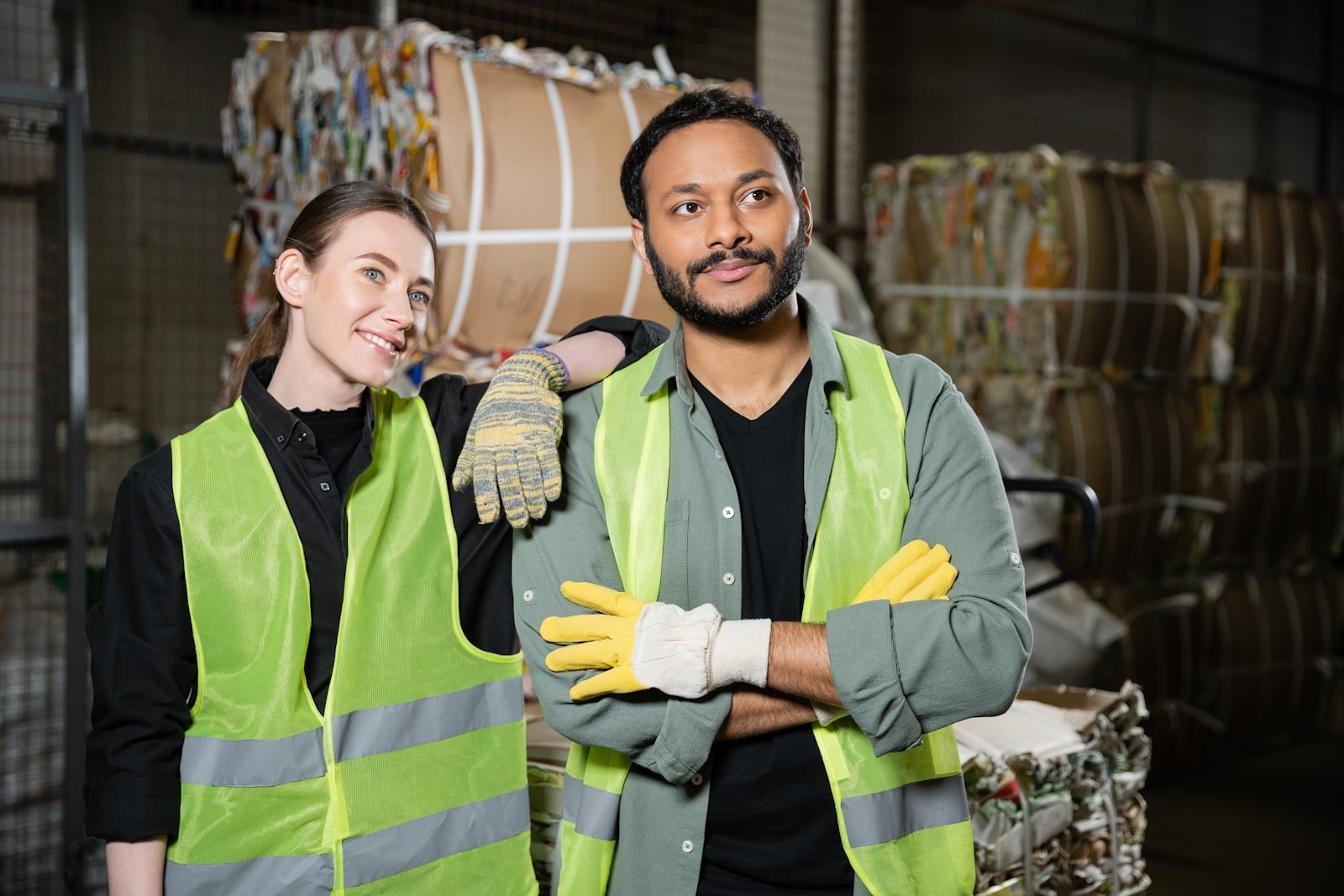Waste Management Companies in Johannesburg: WTE
Johannesburg, the heart of South Africa’s economy, is facing two urgent challenges: mounting waste volumes and ongoing energy shortages. As landfills fill up and rolling blackouts continue, the need for a sustainable, long-term solution becomes more pressing. Waste-to-Energy (WTE) technologies offer a practical and scalable path forward, and waste management companies in Johannesburg are well-positioned to lead this transition.
Understanding Waste-to-Energy (WTE)
Waste-to-Energy encompasses technologies that convert municipal solid waste (MSW) into usable energy forms, such as electricity or heat. The primary WTE technologies include:
- Incineration: Combusts waste at high temperatures, producing steam that drives turbines to generate electricity.
- Gasification: Heats waste in a low-oxygen environment to produce syngas, which can be used for electricity generation.
- Pyrolysis: Decomposes organic material at high temperatures without oxygen, yielding oil and gas.
- Anaerobic Digestion: Breaks down organic waste using microorganisms, producing biogas suitable for energy use.
Each method has its advantages and challenges, but collectively, they offer pathways to reduce landfill reliance and harness energy from waste.
Waste Generation in Johannesburg
The City of Johannesburg generates over 6,000 tonnes of municipal waste daily, amounting to more than 2 million tonnes annually. The bulk of this ends up in landfills, yet a considerable portion — particularly organics, plastics, and paper — is viable for WTE processing. With increasing population growth and urbanisation, this volume is expected to rise, underscoring the role waste management companies in Johannesburg could play in turning waste from a liability into an energy resource.
Existing WTE Initiatives in South Africa
While Johannesburg lacks large-scale WTE facilities, there are notable initiatives elsewhere in the country:
- Bronkhorstspruit Biogas Plant: Africa’s first industrial-scale WTE facility, processing organic waste to generate electricity.
- Northern Water Treatment Plant: Utilizes biogas from wastewater and landfill waste to supply 1.1 MW of electricity, meeting 12% of its energy needs.
Choosing the right solution depends on waste composition, infrastructure, and regulatory frameworks — areas where waste management companies in Johannesburg must collaborate closely with municipal authorities.
Barriers to WTE Adoption in Johannesburg
Despite the potential benefits, several challenges hinder the implementation of WTE projects in Johannesburg:
- High Capital Costs: Establishing WTE facilities requires significant investment, which can be a deterrent for both public and private sectors.
- Regulatory Hurdles: Complex permitting processes and stringent environmental regulations can delay project approvals.
- Public Perception: Concerns about emissions and health impacts can lead to community resistance against WTE facilities.
- Waste Segregation Issues: Inadequate separation of waste at the source affects the efficiency of WTE processes.
Policy and Regulatory Framework
The National Waste Management Strategy 2020 promotes waste minimisation, recycling, and the development of alternative treatment technologies such as WTE. However, local implementation is uneven. Johannesburg’s Integrated Waste Management Plan remains in flux, and environmental impact assessments for large-scale WTE are subject to lengthy approvals under the National Environmental Management Act (NEMA). This slows down investment and innovation.
Waste management companies in Johannesburg need to engage actively with regulatory bodies to streamline permitting and push for greater clarity around emissions limits, licensing, and power purchase agreements.
Addressing Electricity Supply Challenges
Johannesburg experiences frequent load shedding due to aging infrastructure and delayed energy projects. WTE can contribute to decentralized energy production, reducing reliance on the national grid and enhancing energy security. By converting waste into energy, the city can address both its waste management and electricity supply challenges simultaneously.
The Role of Waste Management Companies in Johannesburg
Waste management companies in Johannesburg play a crucial role in the city’s transition towards sustainable waste practices. By investing in WTE technologies, these companies can reduce landfill dependence and contribute to energy generation. A-Thermal, for instance, is at the forefront of this movement, exploring innovative solutions to harness energy from waste.
The collaboration between the public sector and waste management companies in Johannesburg is essential for the successful implementation of WTE projects. By working together, they can overcome financial, regulatory, and societal barriers to establish efficient and environmentally friendly waste-to-energy systems.
Conclusion
The potential for Waste-to-Energy in Johannesburg is significant. By addressing the existing barriers and leveraging the capabilities of waste management companies in Johannesburg, the city can transform its waste challenges into opportunities for sustainable energy production.
At A-Thermal, we are committed to pioneering waste-to-energy solutions in Johannesburg. Our expertise in sustainable waste management positions us as a leader among waste management companies in Johannesburg. If you’re interested in learning more about our initiatives or collaborating on WTE projects, please reach out to us. Together, we can build a cleaner, more energy-efficient Johannesburg.







